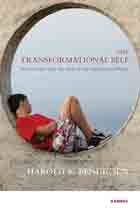The Transformational Self: Attachment and the End of the Adolescent Phase

Book Details
- Publisher : Routledge
- Published : 2013
- Cover : Paperback
- Pages : 272
- Category :
Psychoanalysis - Category 2 :
Child and Adolescent Studies - Catalogue No : 33309
- ISBN 13 : 9781780491424
- ISBN 10 : 1780491425
Reviews and Endorsements
‘The Transformational Self is a new book offering a new concept in self psychology theory to be applied to the developmental transition between adolescence and adulthood. It is exceptionally well researched and tightly reasoned with thorough, valuable reviews and clear, crisp elaborations of the contributions found in the surrounding fields of cognition, neurobiology, linguistics and attachment theory. Harold K. Bendicsen's dedication to the explication of these matters can be found on every page.’
- Barry L. Childress, MD, Child analyst, Chicago Institute for Psychoanalysis
‘This monograph is a tour de force. Impressive in its scope, it synthesizes major trends in analytic thinking from ego theory to chaos/complexity theory, attachment, self, and relational theories, and advances in neurological research. Bendicsen scaffolds these concepts and their developmental implications to create a new, unitary framework of interdisciplinary processes, that he names "Regulation Theory" which, in turn, realizes a higher-level developmental shift in adolescence, the Transformational Self. Utilizing insights from his own adolescent case studies, Bendicsen powers his inquiry by showing how the Transformational Self, a reflective state emerging at the end of Adolescence, becomes the "gateway" to Young Adulthood.’
- Rita P. Sussman, PhD, Faculty, Child and Adolescent Psychoanalytic Psychotherapy Training program, Chicago Institute for Psychoanalysis; and Institute for Clinical Social Work
‘The title of Harold Bendicsen’s new book, The Transformational Self, is itself transformative. The reader is immediately engaged by the title and knows that a much different perspective will be presented to address the challenge of when and how adolescence ends. This book makes an intellectually stimulating attempt to answer this challenge by surveying multiple domains of contemporary knowledge and integrating them in a creative perspective. Bendicsen’s definition of The Transformational Self as a self-organization and as a state of mind is elaborated through chapters which usefully incorporate applicable linguistic theory of metaphor, attachment theory, neurobiology, non-linear dynamics theory (chaos), cognitive theory, attachment theory and psychoanalytic theory. Two case histories provide rich illustrations of the utility of this innovative concept. All of this is accomplished in a readable style.’
- Phil S. Lebovitz, MD, Director, Chicago Institute for Psychoanalysis, Training and Supervising Analyst, Associate Clinical Professor of Psychiatry and Behavioral Science, Rosalind Franklin University of Health Sciences
‘An enlightening work filled with clinical distinctions which leads one to a richer understanding of adolescent transformation. This important book synchronizes psychoanalytic constructs with the impetus surrounding brain research. In effect, he suggests the relevance that neurobiological brain research and psychoanalytic understandings of the unconscious have for one another. As a university president and hence someone engaged in supporting the transformation of adolescents into adulthood, Bendicsen’s analysis enabled me to see more clearly the transformations within and among my university students.'
- Rev. C. Kevin Gillespie, S.J., President, Saint Joseph’s University, Philadelphia
'Highly recommended for those working with adolescents and families and for those who believe that the end of adolescence and the beginning of young adulthood are not separate and discrete phases of life.'
– R.E. Osborne, Texas State University, in Choice Magazine Vol. 51 No. 02
'This new work by Harold Bendicsen, a senior, analytically-trained clinician, presents an impressive new synthesis of developmental theories, culminating in the fully-developed self structure in late adolescence. Unique to this book is the integration of several theories of the self along with linguistic and neurobiological theory. This makes for one of the most comprehensive perspectives on human development through adolescence yet presented in our psychodynamic literature. These integrative theories are further enriched in this book by including two case studies demonstrating the evolution of personal metamorphosis and the capacities in normal development to various and complex self representations. Thoughtful clinicians and students of human development will be well-served by reading, discussing and applying the high-quality research presented here by a very skilled observer of how developmental transformation occurs.'
– Joseph A. Walsh, Ph.D.

